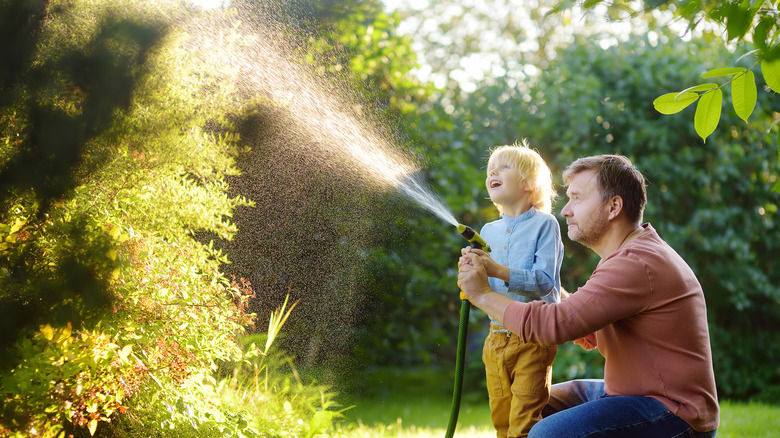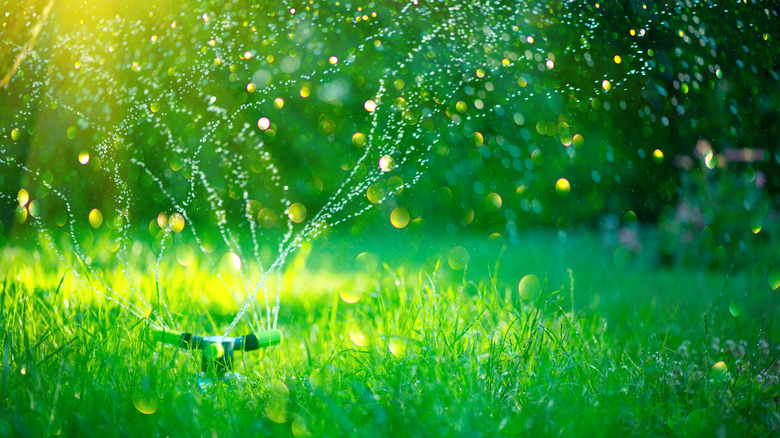Everybody loves a green lawn, but lawns don’t always stay green. Yellowing lawns are quite common, but it can still be very disheartening to see your lawn turning yellow and not know how to fix it. Lawn care, although sometimes complicated, is simple once you get the hang of it.
So what causes your lawn to turn yellow? And how can you fix it? According to Moowy, there are as many as 14 reasons for your lawn to be turning yellow, such as not having enough or having too much water, your grass being too short, blunt mower blades, improper use of fertilizer, or even pet urine. Of course, any one of these reasons is enough to turn your lawn yellow. You don’t have to worry too much, though, because there are ways to fix your issue. All you need is a little patience, some trial, and error, and you will have your lawn looking green all year round in no time.
Are you watering correctly?

As Stewarts Lawn says, one of the main reasons your lawn could be yellowing is improper watering. Too much or too little water can both make your grass turn yellow, so it’s important that you find the right balance. They explain that lawns with shallow root systems, as a result of regular watering, tend to become weaker and more vulnerable to yellowing. Watering your grass less regularly but for a longer amount of time to prevent overwatering is considered best practice. Underwatering can create issues as well. Pulling on the grass gently is a quick and easy way to determine if your lawn is dried. You’ll need to add extra water if the blades of grass pull away when you tug.
It’s also important to note that the species of your grass is key in understanding how to maintain its green color. According to the California Center for Urban Horticulture, different types of grass have different water requirements. Having a good understanding of exactly how much water your lawn needs will help you water it correctly, keeping it looking its best.
Install a smart sprinkler

A smart sprinkler system can be your best friend in making sure your lawn is watered correctly at the right time. As 1001 Artificial Plants explains, there are several benefits to using smart irrigation systems instead of standard irrigation systems. Soil moisture and weather forecasts, for example, may be factored in by smart irrigation systems when deciding how much water to release. A system of wireless moisture sensors communicates with the smart irrigation controllers to determine whether or not your lawn needs watering.
An added advantage to smart sprinklers that you’ll certainly appreciate is the ability to control them remotely. According to Total Landscape Care, smart sprinkler systems now come with mobile phone applications that you can control from anywhere in the world. This means your lawn can stay well-watered even while you’re away. However, as Agro Techno Market notes, although such systems can save you money in the long run, their initial setup costs can be quite high, depending on the scale of your property. Take this into consideration if you’re thinking about getting one installed.